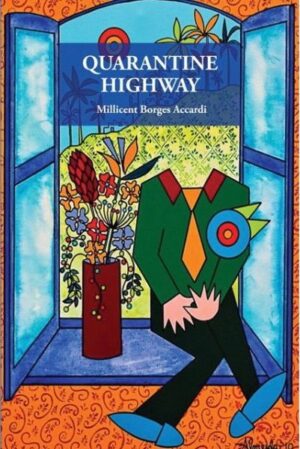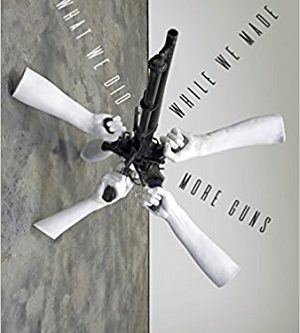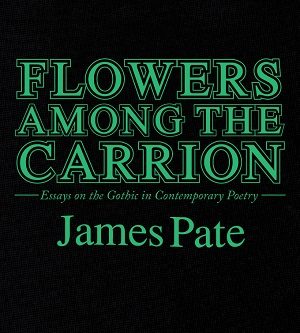
The premise alone of “Quarantine Highway,” (Flowersong Press, Oct. 2022) the latest collection of poetry by Millicent Borges Accardi, is well worth the price of admission ‒ which is only about $16 right now on the Flowersong Press website.
The 68-poem collection, written during the early and mid-months of the global COVID-19 pandemic in 2020, records and examines the shared sense of fear, isolation and uncertainty that many of us nonessential workers, forced to socially distance, would experience for up to a year or more of working from home, home schooling or just sheltering in place.
The book itself emerged from a 30-by-30 writing challenge put to past and present CantoMundistas, AKA fellows of CantoMundo, a national poetry organization since 2009 who, according to its website, “cultivates a community of Latinx poets through workshops, symposia, public readings, and publications.” Accardi’s work here, intentional artifacts, were prompted by readings and themes influenced and initiated by this tightknit literary community who met regularly on Zoom to challenge, collaborate, inspire each other, and to help confront and navigate their forced isolation together with their shared love of poetry and reading, and the healing and safety of their strong connections (personally, professionally, and digitally). What a magnificent experiment and premise for a book of poetry!
One of my favorite poems in the book is “Bread,” which not only sets the stage for the dreaded “new normal” of our world plus social distancing, but it also highlights the vivid imagery, repetition, and surprising wordplay that feature in the best of Accardi’s work throughout the book.
In “Bread,” the speaker opens by telling us what we already “know, knew / know, known…”; that it was all just a big gamble, just a bet we all made “hoping for a last breaking of luck / before the world ran out.” Do you remember making that same bet before braving empty-shelved grocery stores, armed with only “sanitizer and hope,” trying to stock up on anything and everything (even toilet paper) our families might possibly need before “…life was forbidden and / everyone was an enemy”? Because I sure do.
This poem also brings up other important themes explored throughout the book: rampant misinformation from the media, new levels of political upheaval, and the growing divide (both physically and politically) between us and them.
“We were television-glued / as news rolled by and the rooms / misled us into doing the nonsense / we knew we shouldn’t:/ over-drinking, board games, /chanting curses at each other.”
Accardi’s use of first-person plural here, and in many of the subsequent poems in this collection, is a bold choice that clearly demonstrates, to me, the poet’s intention, despite its subject matter, to push past this hate in the time of the ‘rona to a much healthier and more productive place of hope, healing, self-reflection and the reckoning we all so sorely needed.
In “Bread,” a familiar cadence or rhythm also recalled for me the opening bit to T.S. Eliot’s “Waste Land” – and, considering the subject matter, it makes a lot of sense now. Accardi’s word choice and placement of “breaking…” “betting…” “binding…” and “bleeding” echoes the “breeding…” “mixing…” “stirring…” and “feeding…” from Eliot’s seminal Modernist work. And this was just one of many poems in the book that had me Googling other poets and books for hours and hours as I willingly dove down into literary rabbit holes of inspired reading and learning.
I talked to Accardi about “Bread,” and how much I liked it and all the allusions to other poets and their work. I shared with her that, for me, poetry has always been a kind of cosmic conversation between poets over time and space – and that this mystical feeling came over me quite a bit while I was reading her book and all the amazing writers her work references. I asked about her own objectives or goals when it came to writing her poetry.
“I write to try to make sense of the world,” she said, “to piece things
together in my own mind. I write to learn and to research. I write to
keep me sane.”
She told me, whether she was ranting or mumbling, celebrating or complaining, her writing is about vocalizing change and starting a conversation that could, ultimately, effect change.
I should point out that not all the poems in “Quarantine Highway” are specifically about COVID-19, like “Bread.” In fact, most of the poems, as part of the 30-by-30 writing challenge, are direct responses, written under the specter of the global pandemic, to specific poetry prompts: words, phrases or titles of poems, books, and songs.
In the second half of the book, the poet also takes on one of COVID-19’s favorite targets: immigrants and immigration. A proud Portuguese American, Accardi examines her own heritage in much of her writing, and “Quarantine Highway” is no different, especially themes concerning the loss, discovery, claiming, and reclaiming of identity.
In “With Cascading, Iron Straight Hair,” we get all three of the book’s interesting elements in one playful yet poignant poem about a young immigrant teen’s cultural assimilation. “Slathering on lye from an orange jar…” to straighten out her “Portuguese Frizz waves…” in “a divorce of emotions between what /” she sees in the locker and who she sees far away “in the pages of Seventeen magazine…” which the poet calls “a catalogue of friends…” she “could never connect with…”
Composed after a line from “Heirlooms” by Luivette Resto, a Puerto Rican poet and CantoMundo fellow, this piece offers a hopeful “ever-present relief” from what seems a painful personal moment, a “charm of sweet conflict…” as true as true can be.
In “Unlearning America’s Languages” (on a theme by, “Lowering Your Standards for Food Stamps” by Sheryl Luna), another seemingly young voice tells us how her own generation “…form-fitted into a dress of forgetting / language culture, food, Fit in Fit in Fit in / disappear into America…” We learn that their “Parents came to California to rise above / blending inside a fairytale Knott’s Berry Farm…” Finally, the poem ends with devastating (yet still hopeful) image that left me shook and shaken like one of our infamous LA tremors:
“…Tell the counselors you will ride the bus
and stave off the earthquakes, embracing a future
that does not resemble any past you heard whispered
and fought about at night after bedtime, where
we lie in bed and draw words in the air, spelling
out where we came from.
This book easily could’ve taken a much darker turn were it not for that bit of hope in this and other insightful poems in the collection. Accardi made sure to remind us throughout the book that, while hope may be free, real change has a very high and very real cost – it’s the pain, struggle, the fight, the fear, the anxiety, the potential and actual loss of identity, of self, of life, of limb, and of who we are and where we might and might not Fit in Fit in Fit in the world. Most importantly, we see that change, while often imperceptibly slow in the real world, can possibly accelerate through self-reflection, creativity, community, compassion, generosity, art, music, and – dammit, yes – the wise words of poetry!
I asked Accardi who influenced her writing and this hopeful view of her art. I was not surprised when her short list was made up of mostly educators and librarians, her parents and her amazing fellow fellows at CantoMundo. But there was one name on the list that really got my attention: Mrs. Virtue, her first-grade teacher.
Mrs. Virtue wasn’t just any teacher; she was that teacher for Accardi, the one who really left her mark. “Her dad was a poet,” Accardi said, “and she read us poems in class which I am sure were not part of the curriculum.” It turns out Mrs. Virtue’s dad wasn’t just any old poet. Her dad was Claude McKay, a key figure in the Harlem Renaissance.
I couldn’t help but recall a poem about Mrs. Virtue in “Quarantine Highway” called “The Truth would be from a Line” (inspired by Gastão Cruz) that I now knew I’d misread, and which I suddenly realized, I’d clearly misinterpreted as well.
Mrs. Virtue wasn’t a poetic personification of virtue or even some positive educator in general; she was an actual and important person from the poet’s real life. The poem discusses “…an old phrase, / like a poem dealing with / trees I memorized, along with everyone / else in Mrs. Virtue’s first grade [class] / at Luther Burbank…” This line, which would “…require / more sense than this crazy crisis / we are going through presently…” was the truth – the whole truth:
“For truth would have
to be untouchable,
like a hand we used to know,
to hold –
as if it were our own –
the left reaching
for the right, fumbling along thru
this magnificent universe we kind of
know, or at least pretended it to be so.”
This was interesting to me because, while I was reading “Quarantine Highway” for this review, my 8-year-old daughter, struck by the colorful cover art by Ralph Almeida, asked me what the book I was reading was about. I told her it was a poetry book written during the pandemic, which captured her attention. The pandemic is easily the biggest historical event of her young life so far. So, we talked about that difficult time for a little while when she suddenly asked me a question I didn’t know how to answer. Is poetry fiction or non-fiction?
I brought this up to Accardi, and she agreed that it might be an impossible question to answer properly, especially to my 8-year-old daughter. She then recalled how surprised she was one day when she went looking for poetry books at the Alamitos Library in Long Beach, her home-away-from-home as a child and discovered that the poetry books were stored in the non-fiction section. “Poetry was deep in the trenches between biographies and chemistry,” she said. “It made no sense to me.”
In the end, neither of us was sure which was which. And while Accardi gave me an answer for me to share with my daughter, I think I should end this review by sharing that answer here as well. Not only because I like her answer, but because I think it accurately represents what “Quarantine Highway,” the latest poetry collection by Millicent Borges Accardi is really about.
“My final answer is both,” she said. “With poetry, we write about
the truth that is sometimes too painful to speak or mention unless
it is couched in fairy tales, made-up characters, and lessons learned
by strangers, so as not to harm the innocent and to make the
truth easier to take.”
Quarantine Highway by Millicent Borges Accardi is available now from Flowersong Press.
Frank Mundo is a poet from Los Angeles. His latest chapbooks are Touched by an Anglo (Kattywompus Press) and Eleven Sundry Flowers (Antrim House).


